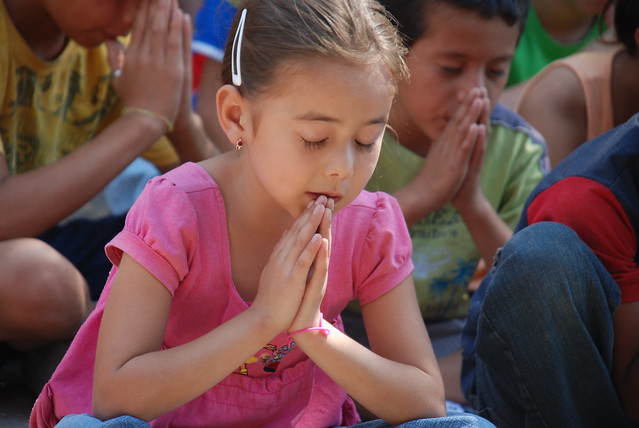I have struggled to pray for most of my life. Prayer has rarely made sense to me, not in an intellectual sense, but as a practical matter. I don’t know what I’m supposed to be doing when I pray, especially when I’m praying by myself. I feel restless and off-kilter, my efforts awkward and superficial.
A few months ago, I wrote a post on my Patheos blog about my years of trying, and failing, to keep a daily individual prayer practice. I wrote about ultimately letting go of the mandate to keep an evangelical-style “quiet time,” explaining that communal forms of prayer and spontaneous prayers of intercession and/or thanksgiving woven into my daily routine have been far more sustaining and sustainable.

I heard from many readers, publicly and privately, who said they, too, have struggled mightily with private prayer; they, too, felt that the mandate for daily “quiet time” can smack of legalism.
But I also heard from readers who thought that I was doing a disservice to both God and my own faith formation by giving up on “quiet time.” In a post responding to mine at The Gospel Coalition, Megan Hill wrote that daily Bible study and prayer are, in fact, essential for all believers, and that “a Scripture-and-prayer-shaped life will also necessarily include specific quiet times.”
I appreciated her continuing the conversation, but I also argued that she got some things wrong. Mainly, I wasn’t rejecting prayer and study — just the evangelical “quiet time” approach to it.
But after the minor blog flare-up died down, something about Hill’s assertion that I was discarding an essential faith practice stayed with me. I believe that authentic faith is rooted in the daily and the mundane; my faith ought to influence how I see and act in the world every day. Was my willingness to discard a daily prayer practice a sign not of thoughtful discernment, but of apathy?















